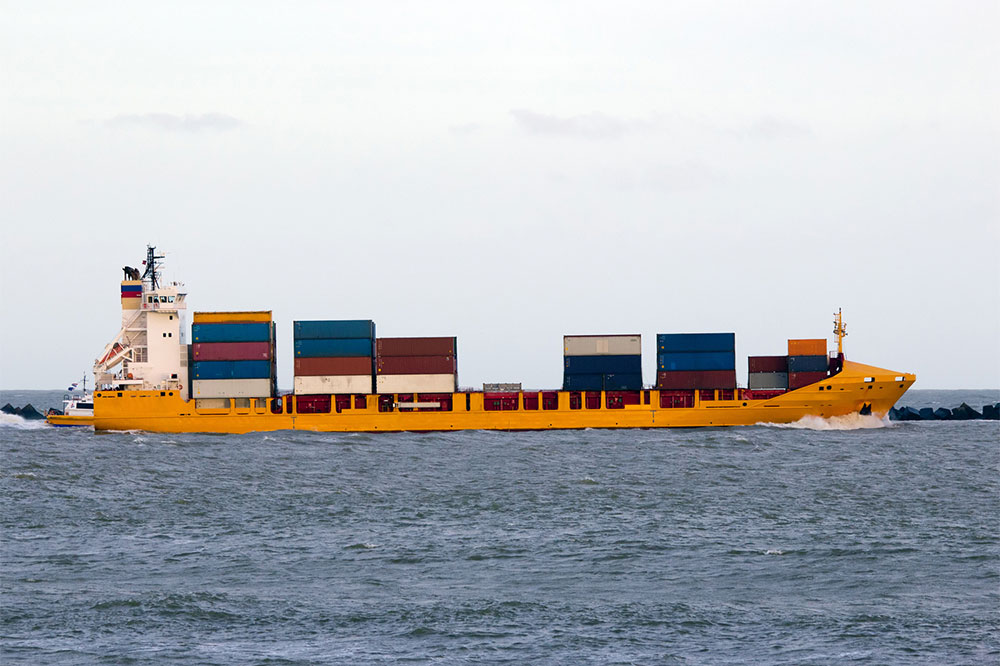Pros and cons of maritime transport
Maritime transport , also known as maritime shipping, ocean transport, or water transportation, is the transport of goods and people via waterways—seas and oceans. It is one of the most popular and widely used means of hauling goods over long distances. As the vast majority of the Earth’s surface is covered with water, this mode has always served as a viable option compared with other means. However, maritime transport comes with its unique advantages and disadvantages.
Pros of maritime transport
Affordability: Shipping is an affordable means of transportation for long distances. As shipping cargo can consist of a variety of goods from different businesses, all of them will share the cost of transportation.

Capacity: Ships can carry goods of all sizes in very large numbers. The cargo can include small, lightweight objects to heavier and bulkier goods like various types of machinery, trucks, and industrial appliances. This allows people to transport large goods at lower costs and engage the services of shipping companies to deal with a large volume.
Safety: Maritime transport is highly reliable and prevents cargo loss by sealing and locking the containers.
International trade: Shipping links global trade markets and brings in foreign trade and resources to the country. More than 70% of global trade is facilitated by ports at various locations.
Efficiency: Water transportation offers the smoother movement of commodities compared to rail, road, and air transportation. Additionally, smaller shipments can be arranged into groups, keeping them away from heavier ones. Shipping containers can also be used for further transport by road or rail.
Cons of maritime transport
Slow transit: The vessels are much slower than aircraft and other means. They also have to travel a longer route to reach their destination. It can take several weeks for goods to reach the destined ports. So maritime transport is usually not recommended for emergency transport.
Delays: Ocean transportation can suffer from possible delays. Bad weather conditions and other obstructions can cause a delay in transit. There is also a risk of damage to the goods due to collision, overturning, sinking, etc.
Traceability: Ships usually operate on weekly schedules, but the routes and timetables can change. This can make it difficult to track your shipment.
Prone to accidents: Water transportation poses various accidental risks such as collisions, overturning, sinking, fire explosion, and damages due to weather. Vessels that move through uncharted territories are also prone to terrorist and pirate attacks.
Extended transit: Transportation via waterways is generally intended for the movement of goods, especially large goods, to a region far away. However, after reaching the port, the cargo may require further transportation by road or air to reach its final destination.
Fluctuating freight rates: Freight rates are the price at which cargo is delivered from one location to another. The basic rates are influenced by factors like fuel prices, the season, currency fluctuations, and container capacity, among others. Additionally, the receiver will also be required to pay port duties and taxes.
Additionally, another factor to consider is the environmental impact of shipping. When compared to flights and road transportation, maritime transport is a more eco-friendly option as it uses comparatively less fuel, leaving a smaller carbon footprint. This also helps save fuel and limit the negative consequences. However, the movement of ships, especially large cargo vessels, can result in environmental problems like pollution and the greenhouse effect. Some of these issues are:
Air pollution: Exhaust gases from ships contain both conventional pollutants and greenhouse gases. They can contaminate the atmosphere and pose a threat to the health of humans, plants, and other living beings.
Water pollution: Large ships generally carry a huge amount of ballast water and later discharge it into the sea. This can cause damage to aquatic life.
Noise pollution: The noise produced by vessels can travel long distances and interfere with the life of marine species that rely on sound for their various life activities.
Oil pollution: It is one of the most common forms of contamination associated with marine transport as oil spills from shipping vessels have a devastating effect on marine life. It can lead to certain diseases and even loss of aquatic life.
Transportation via waterways is an integral part of trade and commerce. It is a strong pillar that supports the global economy, and many people depend on international and domestic shipping for their jobs and livelihood. Even though maritime transport can pose a few risks, safeguarding the future of shipping may contribute to reducing the cons, resulting in safe and secure transit.

